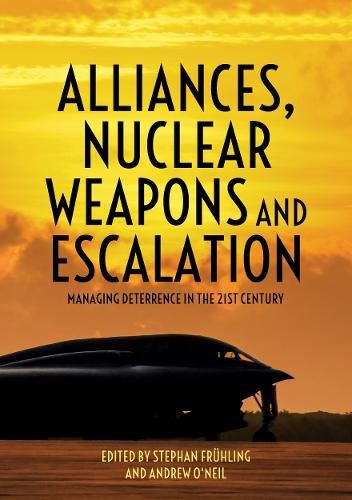Readings Newsletter
Become a Readings Member to make your shopping experience even easier.
Sign in or sign up for free!
You’re not far away from qualifying for FREE standard shipping within Australia
You’ve qualified for FREE standard shipping within Australia
The cart is loading…






In an era of great power competition, the role of alliances in managing escalation of conflict has acquired renewed importance. Nuclear weapons remain the ultimate means for deterrence and controlling escalation, and are central to US alliances in Europe and the Indo-Pacific. However, allies themselves need to better prepare for managing escalation in an increasingly challenging geostrategic and technological environment for the US and its allies. While the challenge of great power competition is acute at both ends of Eurasia, adversary threats, geography and the institutional context of US alliances differ. This book brings together leading experts from Europe, Northeast Asia, the United States and Australia to focus on these challenges, identify commonalities and differences across regions, and pinpoint ways to collectively manage nuclear deterrence and potential escalation pathways in America’s 21st century alliances.
$9.00 standard shipping within Australia
FREE standard shipping within Australia for orders over $100.00
Express & International shipping calculated at checkout
In an era of great power competition, the role of alliances in managing escalation of conflict has acquired renewed importance. Nuclear weapons remain the ultimate means for deterrence and controlling escalation, and are central to US alliances in Europe and the Indo-Pacific. However, allies themselves need to better prepare for managing escalation in an increasingly challenging geostrategic and technological environment for the US and its allies. While the challenge of great power competition is acute at both ends of Eurasia, adversary threats, geography and the institutional context of US alliances differ. This book brings together leading experts from Europe, Northeast Asia, the United States and Australia to focus on these challenges, identify commonalities and differences across regions, and pinpoint ways to collectively manage nuclear deterrence and potential escalation pathways in America’s 21st century alliances.